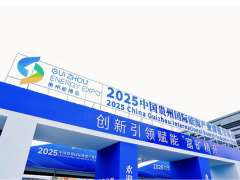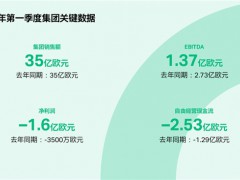據(jù)天然氣資訊8月6日消息稱,數(shù)據(jù)分析公司GlobalData表示,盡管東南亞是液化天然氣的凈出口國(guó),但到2030年,東南亞將越來越依賴進(jìn)口液化天然氣,以滿足不斷增長(zhǎng)的需求,并支撐日益減少的國(guó)內(nèi)供應(yīng)。
隨著人口和經(jīng)濟(jì)的持續(xù)增長(zhǎng),東南亞是未來十年天然氣的一個(gè)關(guān)鍵增長(zhǎng)地區(qū),一些國(guó)家將天然氣視為滿足日益增長(zhǎng)的電力需求盡管該地區(qū)是天然氣凈出口國(guó),主要受到馬來西亞和印度尼西亞的支持,但強(qiáng)勁的需求增長(zhǎng)可能在本十年結(jié)束前超過該地區(qū)的供應(yīng)。
GlobalData高級(jí)油氣分析師Daniel Rogers評(píng)論道:“在該地區(qū)的天然氣和液化天然氣前景中,泰國(guó)和菲律賓的天然氣供需缺口預(yù)計(jì)將擴(kuò)大,因?yàn)閲?guó)內(nèi)供應(yīng)下降滿足了穩(wěn)定的需求增長(zhǎng)。兩國(guó)將通過增加液化天然氣再氣化能力,尋求液化天然氣市場(chǎng)填補(bǔ)國(guó)內(nèi)生產(chǎn)或管道進(jìn)口無法填補(bǔ)的缺口。兩國(guó)目前有超過3萬億立方英尺的再氣化產(chǎn)能,計(jì)劃中的產(chǎn)能約為2萬億立方英尺,已宣布的產(chǎn)能約為1萬億立方英尺,到2030年可能投入使用,相比之下,目前的產(chǎn)能只有0.5萬億立方英尺。”
2020年,泰國(guó)和新加坡進(jìn)口了創(chuàng)紀(jì)錄的液化天然氣數(shù)量,緬甸在疫情期間首次進(jìn)口了液化天然氣貨物。GlobalData表示,在泰國(guó),液化天然氣進(jìn)口可能變得越來越重要,因?yàn)閲?guó)內(nèi)供應(yīng)和從緬甸進(jìn)口面臨自然下降,而這兩個(gè)國(guó)家的需求增長(zhǎng)繼續(xù)上升。即使到2030年,新加坡預(yù)計(jì)仍將嚴(yán)重依賴天然氣,因?yàn)樵搰?guó)幾乎所有的發(fā)電都來自天然氣。新加坡去年的液化天然氣進(jìn)口增加了20%,隨著管道天然氣供應(yīng)合同在短期內(nèi)到期,液化天然氣進(jìn)口將對(duì)支撐急需天然氣的電力結(jié)構(gòu)至關(guān)重要。
Rogers先生總結(jié)道:“在供應(yīng)方面,馬來西亞和印度尼西亞有一個(gè)項(xiàng)目管道,將有助于在短期內(nèi)提高產(chǎn)量,印度尼西亞增加的近 400 萬噸液化天然氣液化能力將越來越多地用于供應(yīng)其國(guó)內(nèi)市場(chǎng)。然而,文萊、越南和緬甸在預(yù)測(cè)期內(nèi)面臨國(guó)內(nèi)供應(yīng)下降的風(fēng)險(xiǎn),除非它們能夠推進(jìn)目前面臨挑戰(zhàn)的未開發(fā)天然氣項(xiàng)目。這些項(xiàng)目的進(jìn)展對(duì)其供應(yīng)前景至關(guān)重要。
朱佳妮 摘譯自 天然氣資訊
原文如下:
Globaldata: Southeast Asia to increasingly rely on LNG imports
Despite being a net exporter of LNG, Southeast Asia is set to increasingly rely on imported LNG through 2030 to meet the growing demand and support the waning domestic supplies, says GlobalData, a data and analytics company.
Southeast Asia represents a key growth region for natural gas over the next decade as populations and economies continue to grow and several countries look to gas for meeting the ever-growing power demand. Despite the region being a net exporter of gas supported mainly by major gas producers Malaysia and Indonesia, strong demand growth could outpace the regional supply by the end of the decade.
Daniel Rogers, Senior Oil and Gas Analyst at GlobalData, comments: “In the gas and LNG outlook for the region, both Thailand and the Philippines’ gas supply-demand gaps are expected to widen as steady demand growth is met by the declining domestic supply. Both countries will look to the LNG market to fill the gap where domestic production or pipeline imports are unable to, through additional LNG regasification capacity. There is over 3 trillion ft3 of regasification capacity in the pipeline, approximately 2 trillion ft3 of planned and 1 trillion ft3 of announced capacity across these two countries that could be online by 2030, this compares to just 0.5 trillion ft3 of capacity currently active.”
In 2020, Thailand and Singapore imported record LNG volumes, and Myanmar imported its first ever LNG cargo despite the pandemic. In Thailand, LNG imports are likely to become increasingly important for the country as both domestic supply and imports from Myanmar face natural decline while the demand growth from these two countries continues to rise, GlobalData states. Even till 2030, Singapore is expected to remain heavily dependent upon gas as it represents almost all the country’s power generation. Singapore’s LNG imports jumped 20% last year and with the piped gas supply contracts expiring over the near term, LNG imports will be vital for supporting a gas hungry power mix.
Mr Rogers concludes: “On the supply side, Malaysia and Indonesia have a project pipeline that will help boost production over the near term and just under 4 million tpy of increased LNG liquefaction capacity in Indonesia will increasingly be used to supply its domestic market. However, Brunei, Vietnam, and Myanmar risk facing domestic supply declines over the forecast period unless they can progress their currently challenged, undeveloped gas projects. Progress of such projects will be pivotal for their supply outlooks.
免責(zé)聲明:本網(wǎng)轉(zhuǎn)載自其它媒體的文章,目的在于弘揚(yáng)石化精神,傳遞更多石化信息,并不代表本網(wǎng)贊同其觀點(diǎn)和對(duì)其真實(shí)性負(fù)責(zé),在此我們謹(jǐn)向原作者和原媒體致以敬意。如果您認(rèn)為本站文章侵犯了您的版權(quán),請(qǐng)與我們聯(lián)系,我們將第一時(shí)間刪除。







